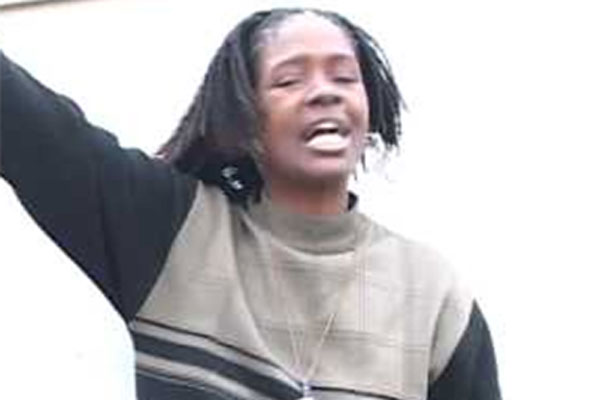

BY SHARON SIBINDI
The death of songstress Beater Mangethe was a blow to the music reverberation from the old location of Makokoba in Bulawayo amid emerging revelations that her band also died with her.
Mangethe, a product of Amakhosi Arts Centre, was a star from Makokoba to Mzilikazi, she became the icon of township music. However, her death in 2010 robbed the country of the rising star who would have put Bulawayo on the world map after her band also went into oblivion following her death.
Standard Style traced her band members and promoters to establish what was happening to the project. One of the band members, Edson December who was her bass guitarist said some of the band members passed away, while others were exploring other things.
December, said he met Mangethe in 2005 and their first encounter was at Alabama Club.
“I met Beater Mangethe in 2005 and we were a band on our own called Real Bantu. So, when we combined with hers [Mangethe] we shelved our project as hers was a bigger project. Our first encounter with her was at Alabama Club where Real Bantu was playing every Friday,” December said.
“We were supporting acts for Sis [Mangethe] and Afrika Revenge. So, we as Real Bantu we had seen that Sis had no band and she was using back tracks. We then rehearsed two songs on our own without her knowledge. These songs were titled, I Come from Makokoba and Africa Mama so when she was about to go on stage, we told her that we can play her songs using as live band and she didn’t believe it.
“She then agreed that we play the songs and herself and the club owner — Omega Sibanda was also shocked. “From that day, we stopped playing copyrights, it was now Mangethe on the vocals and songs.”
- Chamisa under fire over US$120K donation
- Mavhunga puts DeMbare into Chibuku quarterfinals
- Pension funds bet on Cabora Bassa oilfields
- Councils defy govt fire tender directive
Keep Reading
December said the band started facing challenges as some fans shunned her shows because of tribalism.
“We started playing in some of the shows we faced resistance from some fans especially big guns in Bulawayo who started using tribal lines saying Sis is playing with Shonas and she is playing rhumba. Some even started shunning her shows, but they didn’t understand that it was a strategy for her music to be danceable on stage,” he said.
“She didn’t take that criticism as she loved the new sound. We kept rehearsing and the same people started to love what we were doing. We started holding shows using a live band and we moved the rehearsals to Amakhosi.
“We then started doing shows in and out of Harare and the Beater Mangethe brand grew bigger.”
December said in 2006, the band got a new manager and promoter, Panganayi Hare, who brought the late Mangethe’s star to its highest level.
“In 2006, Panganai Hare came in as our manager and things changed for good. More shows were coming. He was such a big promoter who was behind all the big shows. We started supporting acts to big names like the late Oliver Mutukudzi, Alick Macheso, Tongai Moyo and Soul Brothers,” he said.
“However, Sis was a nice person even when we worked, she made sure everyone could get their money. She loved her job well, she had respect for the band she was different from all female musicians. She couldn’t compromise to get a favour, she believed in hard work because her background and she loved to prove she can do it.”
December said Mangethe was a strict person, especially after shows.
“She didn’t allow any band member to remain behind for whatever reason and she would tell you that you are here in my name so if you want to see your friends, you will come at your own time. She respected her husband Lenny Gwata and loved her son Lesley so much. I have heard people talk about the late Mangethe saying she did this and that, that lady was well behaved for all the time I worked with her and she was a boss at work and a mother at home. Usually she stayed indoors watching movies,” he said.
He said Mangethe’s band members were exploring other things while some passed away.
“Band members are in different fields, Skoro is a priest, a lady called MaThousands passed away, Mzoe, I heard he is at school — St Columbus, Makula, I once met him in Harare and he is still doing arts. Mbiza, another dancer I heard that he is no longer well [mental problem], then instrumentalists, I am still doing music here in Harare, with Obert Chari, Mebho, Webster and Lovecent are in South Africa, while Lewis Ndlovu is in Bulawayo,” he said.
Meanwhile, Hare being the first person who brought Mangethe’s star to its highest level, said it was a pleasure working with the talented artiste.
“Beater took her talent with her and unfortunately l am no longer into music promotions. I am also in the dark as to what happened to the band after her demise. Wherever the guys are pursuing their careers l wish them well,” Hare said.
Asked if he had any plans to bring her band together, to carry on her legacy, Hare said: “I just happened to be MaKhumalo’s friend and manager. I am not a family member. Whatever the family decides to do with her estate or the band its up to them.”
“However, should there be plans to revive the band and l am approached for assistance l will see how l can help. It is, however, important to note that l am no longer active in music promotions. I am now a recorded artiste on my own. My debut album Mbuva YeHwiza is holding it’s ground and is receiving massive airplay. “The song Panganayi off that album is topping the charts.”
He said he was willing to assist Mangethe’s son if he wants to venture into music industry.
“If MaKhumalo’s son wants to have a sojourn in the music industry and is talented and he approaches me for assistance l will assist him to the best of my ability in as much as l can assist a son or daughter of any of the late musicians l have worked with before. It doesn’t necessarily follow that if your dad or mum was a musician you also become one,” he said.
Ndlovu, the founder of Drums of Peace, who played drums for the late artiste, he said the lead vocalist died causing the death of the group.
“She was the founder and lead singer so everything relied on her. At some point the younger sister Yaya tried to resuscitate the group, but only went for a while,” Ndlovu said.











